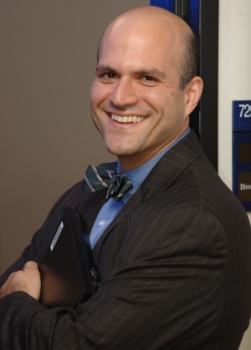 By Anthony Brino, Government Health IT
By Anthony Brino, Government Health IT
The U.S. National Coordinator for Health IT Farzad Mostashari, MD, outlined his ideas for a proposed vendor fee at a committee meeting Wednesday, arguing that “having an assured funding base” for the agency’s certification program “would reduce uncertainty for the industry.”
The fee would be tailored to raise as much as $1 million annually, with the costs spread across information technology companies selling software and IT systems to providers under the meaningful use program.
The industry has greeted the idea with general unease; the HIMSS EHR Association came out in opposition to the fee recently, citing increasing workload and declining government funding, and suggesting the agency look to streamline resources to avoid the tax.
At a meeting of Health IT Standards Committee, Mostashari said he wanted to put the ONC’s fiscal year 2014 budget proposal — where the fee idea is laid out — into a greater context of the ONC’s work and U.S. healthcare spending.
Drafting continuity of care document standards for meaningful use stage 2 “took a few million dollars,” Mostashari said. “That has to be viewed in the context of the $30 trillion we’re going to spend on healthcare” as a nation in the coming decades.
The ONC’s budget, meanwhile, does face a bit of uncertainty, with a requested $78 million subject to Congressional approval. “It’s not a very impressive absolute number, but I think we really use that money well and leverage that with community support.”
The vendor fee, Mostashari said, is partly meant to replace declining HITECH Act funding for the ONC’s work on standards and certification.
“And I believe the only way this will work is if the vendors will receive direct benefit from this, and derive more value from this than from whatever it would cost them in increased certification fees,” he said.
Amid Congress’s financial mood swings — cutting funding for the Affordable Care Act’s consumer insurance CO-OP loan program in the sequester bill, for instance — Mostashari said: “I think there is value in reducing uncertainty and making sure that we can have a permanent certification program.”
The fee would also be an opportunity, he said, for IT companies and software developers seeking meaningful use certification to “have a stake in the process” and “help us improve.”
Of course, there are still some unknowns — how the fee would be assessed, in what amounts and if there would be any exemptions.
For instance, would the fee would apply to hospitals and providers that self-certify? asked John Halamka, MD, CIO of Beth Israel Deaconess Medical Center.
“This is just the authority to have a user fee,” Mostashari said, noting that it would have to be approved by Congress and then be developed with industry input through the federal regulatory process. “I’m sure those issues would be taken into account.”
This article was originally published on Government Health IT and is used here with permission.
